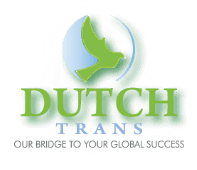
Requirements to Become an Expert Translator
06 Sep Requirements to Become an Expert Translator
An expert translator is not just a guy who knows Dutch and another language, and it takes much more than that in order to be accepted as a translator with us. Here are some of the skills an expert translator needs to have.
Understanding Target and Source Languages
Understanding the intricacies of target and source languages is crucial for professional translators aiming for a successful career in the translation industry. A translator must possess in-depth knowledge of both the source language and the target language, often necessitating native language proficiency or advanced language skills in the target language culture. The role of freelance translators and those working in translation agencies involves more than just language proficiency; it requires effective communication skills, extensive knowledge of terminology management, and familiarity with computer-assisted translation (CAT) tools.
Accurate translation of legal documents, medical documents, and marketing materials demands not only linguistic abilities but also a deep understanding of cultural references and quality standards. Successful translation projects often rely on the expertise of native speakers who can produce high-quality translations while maintaining the nuances of the original material. Professional translation services, whether for Spanish translation, business skills, or technical translation, are built on the foundation of satisfied clients and realistic translation times. This level of service is supported by a strong translation team, confidentiality agreements, style guides, and professional bodies. To meet the high demands of the industry, translators may seek a degree in translation from institutions like the University of North Carolina, Montclair State University, or the University of Iowa – Iowa City, ensuring they are well-equipped with both the technical and soft skills necessary for success.
Essential Language Skills for Translators
Essential language skills for translators encompass a comprehensive understanding of both the source and target languages, often necessitating native-level proficiency or advanced language skills. Translators must master not only the grammatical structures and vocabulary of these languages but also the cultural nuances and context-specific meanings that can impact translation accuracy.
Effective communication skills are vital, allowing translators to convey the original message clearly and accurately while maintaining the tone and intent of the source material. Proficiency in using computer-assisted translation (CAT) tools and terminology management systems is crucial for enhancing translation efficiency and consistency. Additionally, strong research skills enable translators to handle specialized terminology and complex subject matter, ensuring precise translations. The ability to produce quality translations under time constraints, coupled with a keen attention to detail and a commitment to maintaining confidentiality, defines the professional excellence required in the translation industry.
The Role of Cultural Knowledge in Translation
The role of cultural knowledge in translation is pivotal, as it ensures that the nuances, idioms, and context-specific meanings of the source language are accurately conveyed in the target language. A translator with in-depth cultural understanding can navigate the complexities of both languages, preventing misinterpretations and preserving the original message’s intent and tone. Cultural competence allows translators to adapt content to the target audience’s values, beliefs, and social norms, enhancing the translation’s relevance and effectiveness. This is particularly important in areas such as marketing, legal, and medical translations, where cultural misunderstandings can lead to significant miscommunication or legal issues. Ultimately, cultural knowledge bridges the gap between different linguistic communities, fostering mutual understanding and effective communication.
Skills of an Expert Translator
- Professionalism:
Ethics are essential in translating. Preserving confidentiality, and delegating projects to other translators when one is unqualified are much needed traits.
- Networking skills:
Oftentimes, translation is done through virtual teams, where they coordinate and help each other improve their works. Project managers must manage large groups of linguists. Freelancers have to market themselves to others. Thus, social skills cannot be stressed further in importance.
- Attention to detail:
All translators have to be keen in details. This profession might be best for those who become frustrated at the sight of apostrophes used wrongly. Proofreading and revision skills are must. This blog will guide you through common errors of grammar.
- Flexibility/adaptability:
Since translating is quickly changing, translators should ready new skills and services to remain competitive in the field. These skills may include copy-writing and transcriptions.
- Organizational skills:
The profession of translating is often driven by deadlines. One must be able to work efficiently towards targets. Thus, time management and initiative cannot be stressed further.
- Writing skills:
Since translators are professional writers, knowledge of one’s language is a must. This includes impeccable grammar and vocabulary. It is recommended that translators read frequently and practice blogging or writing. Also, spelling is extremely important for translators, since a display of wrong spelling leaves a negative impression. A great test to challenge one’s spelling is the Oxford spelling test.
- General knowledge:
This can come quite handy for translators. It can help one correct mistakes in text. Some translators read the news every morning since it may come up in their work.
- Analytical skills:
Translators need advanced skills in analyzing so they may understand how their text operates. Once hey understand, they can easily translate their findings.
- Research skills:
Translators often receive varied specialized text. Thus, they must find reliable sources of information and vocabulary. Sometimes, translators can even be caught calling a friend for help!
- Subject knowledge:
Possessing subject knowledge on specific topics is always an added bonus to translators. One might be knowledgeable in engineering or medicine, or even sports! Reflect on the different topics you are knowledgeable of, and try to translate them to other languages!
- Curiosity:
Curiosity is a great characteristic to have when translating. It aids in learning new skills, and motivates research on different topics. Ultimately, it will get to the gist of your client’s needs.
- Excellent knowledge of the foreign language:
One must have a good grasp of another language to translate well. This includes understanding sentences and their underlying meanings in varying context. Reading different books and viewing TV shows in your foreign language helps a lot.
- IT skills:
Translation has become increasingly influenced by IT, with its constant use of email and unique software. Since software often develops quickly, one must always be up to date.
- Picking up new ideas quickly:
When freelancing as a translator, one cannot always anticipate correctly what arrives in their inbox. What are some of the different ideas translators encounter from day to day?
- Good cultural awareness:
Understanding language does not only deal with language alone. It also involves becoming aware of its culture. Different locations may present different meanings regardless of their spelling. ‘Banlieue’ in France and UK vary greatly in meaning and connotation. It translates to suburb, and connotes poverty in France.
- Love of reading:
Wide reading is essential when in the field of translating. It ensures that your writing style is refined. Read good books and journals. A few translators even get hired to read books, so they may comment if they are worth translating!
As you can see, knowing two or more languages doesn’t make anyone an expert translator. We at DutchTrans only employ professional translators and our screening process makes sure of this fact. If you are a translator looking for translation work feel free to contact us and send us your CV.
 Expert Translator
Expert Translator
Translation is one of the challenging careers to get into, but with the right qualifications and credentials, you will find opportunities. And once you prove yourself as an expert translator with specialist knowledge, you can expect to see more work and carve out a good career for yourself with a reasonable income and work flexibility.
As you grow as a translator, there are other fields to recognize as well. What specific industry or industries can you translate for? Are your computer savvy and educated regarding translation memory software? Do you keep up with industry trends? If you have had success as an expert translator, maybe you could consider expanding and becoming a certified translator. If you are working in a specific field, you should be keeping modern with the latest release, trends, rules, and technologies. The more information and knowledge you have, the simpler it is to translate texts correctly and with authority.

